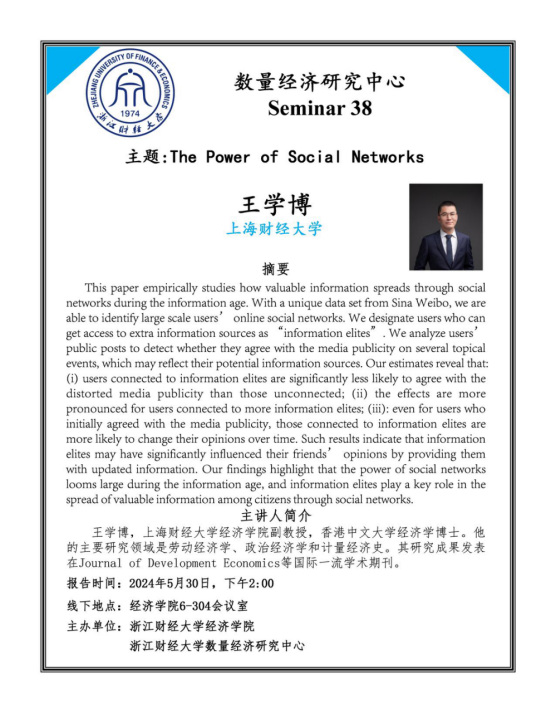The Power of Social Networks
Abstract:
This paper empirically studies how valuable information spreads through social networks during the information age. With a unique data set from Sina Weibo, we are able to identify large scale users’ online social networks. We designate users who can get access to extra information sources as “information elites”. We analyze users’ public posts to detect whether they agree with the media publicity on several topical events, which may reflect their potential information sources. Our estimates reveal that: (i) users connected to information elites are significantly less likely to agree with the distorted media publicity than those unconnected; (ii) the effects are more pronounced for users connected to more information elites; (iii): even for users who initially agreed with the media publicity, those connected to information elites are more likely to change their opinions over time. Such results indicate that information elites may have significantly influenced their friends’ opinions by providing them with updated information. Our findings highlight that the power of social networks looms large during the information age, and information elites play a key role in the spread of valuable information among citizens through social networks.
报告时间:2024年5月30日,下午2:00
线下地点:威廉希尔6-304会议室
主办单位:william hill中文网、英国威廉希尔公司数量经济研究中心
嘉宾简介:
王学博,上海财经大学威廉希尔副教授,香港中文大学经济学博士。他的主要研究领域是劳动经济学、政治经济学和计量经济史。其研究成果发表在Journal of Development Economics等国际一流学术期刊。
